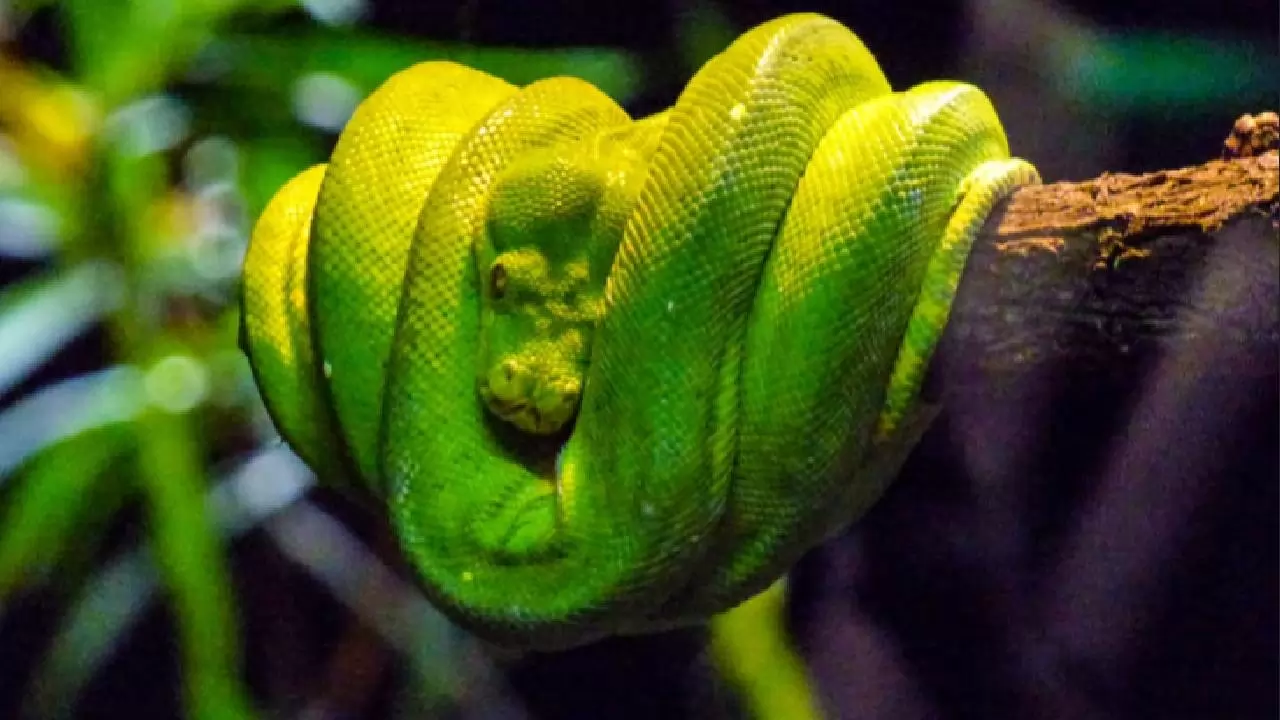
Flickr
New Delhi: Imagine this as you enter a restaurant, craving a thick, juicy steak. But, to your surprise, you're offered a unique option - python steak! While it may seem unlikely, it's a possibility that's slithering its way into reality. As climate change worsens, scientists are exploring unconventional protein sources, including python meat which is currently bred for its valuable skin.
The fashion world's obsession with python skin drives demand for these snakes, as their hides are transformed into luxurious accessories like handbags, shoes and belts for European markets. The unique patterns and exceptional durability of python leather make it a coveted material in high-end fashion, fueling its popularity among designers and consumers alike.
Snakes may hold the key to sustainable protein production, with their fast breeding and growth offering a more environmentally friendly alternative to traditional livestock. With existing farms in China and Vietnam and a history of consumption in Asian cuisine, snake meat could be the next big thing in sustainable food.
According to an AFP report, the world's appetite for meat is growing rapidly, with global production more than tripling over the past 50 years to over 350 million tonnes annually.
"We really are running out of resources, whilst at the same time, the demand for high-quality nutrients is going up," Patrick Aust, co-author of the study, told ABC News.
According to a report from the Organisation for Economic Co-operation and Development (OECD) in Paris, by 2032, global meat demand is projected to rise by 14%, fueled by a combination of population growth in low-income nations and rising living standards in Asian countries.
Pythons specifically reticulated and Burmese species, show promise as a sustainable alternative to traditional livestock, according to a study in Vietnamese and Thai snake farms. Reptile meat like chicken, is high in protein, low in saturated fats and has widespread cultural and culinary appeal, according to the research paper.
Pythons are highly efficient in converting food into protein and can thrive in adverse conditions. They also have a remarkable reproductive capacity with females laying up to 100 eggs per year.
Research shows that pythons can survive for extended periods without sustenance, reducing feeding efforts, and their high reproductive rates make them a suitable choice for environmentally friendly meat production.
Although python farming offers a promising solution, several obstacles must be addressed before it can become a widely accepted alternative. One major challenge is overcoming cultural biases, as many Western societies are reluctant to embrace snakes as a food source.
Snake farmer Malucchi, who relocated from Italy to Thailand 40 years ago, has faced significant resistance in persuading people to adopt snake meat, saying, "I consume my snakes because I'm aware of their diet and upbringing." In countries like the US, where Burmese pythons are considered invasive, the focus is on population control rather than farming for human consumption, a mindset that needs to shift.
While cultural acceptance may take time, the benefits of python farming are undeniable. As the conversation around sustainable food sources continues to evolve and plant-based diets gain popularity, it is likely, that python meat will eventually find its way onto restaurant menus.





Copyright © 2026 Top Indian News
